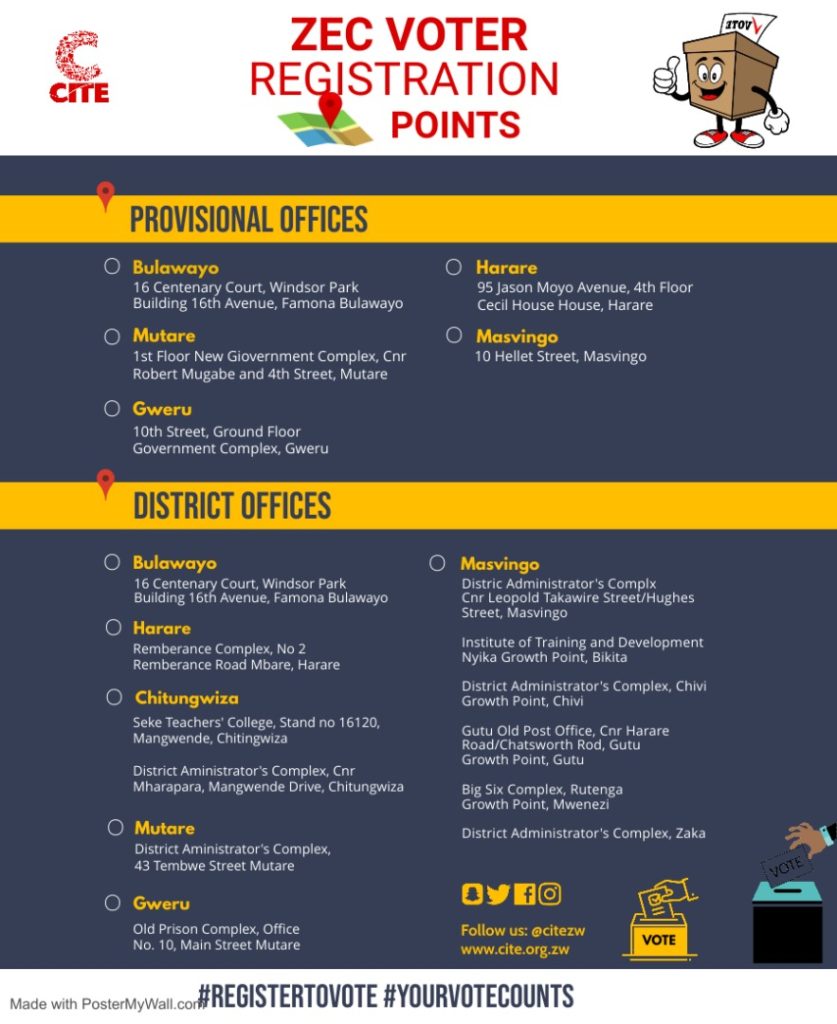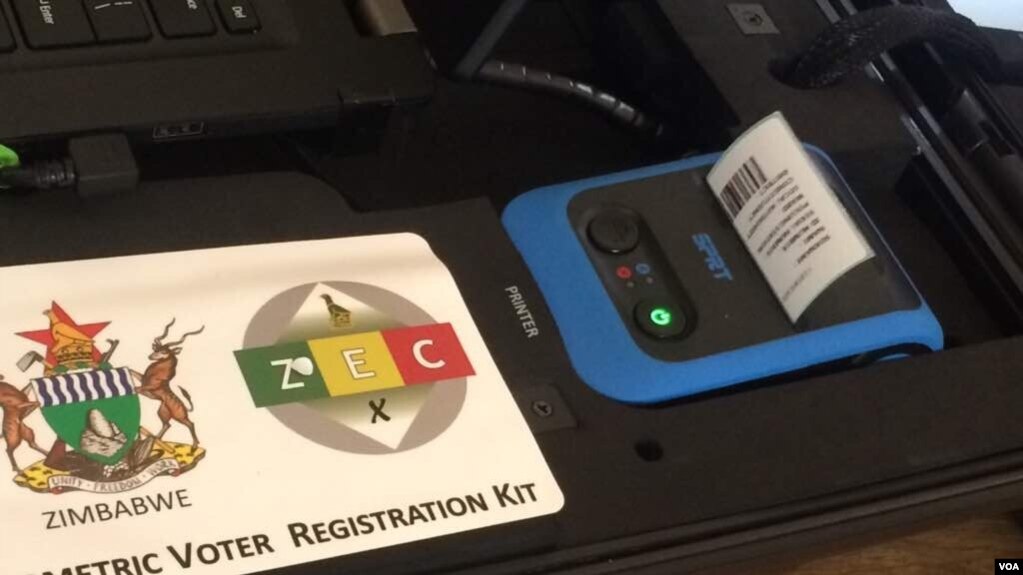Some youths in Magwegwe suburb have started an initiative to mobilise people to register as voters in a bid to save the constituency from delimitation.
Delimitation is the process of dividing the country into constituencies and wards for the purposes of elections of persons to constituency seats in the National Assembly and of councillors to local authorities.
In the previous election, the minimum threshold of a constituency was 21 000 registered voters, as indicated by the Zimbabwe Electoral Commission (ZEC).
However, youth in Magwegwe have noted that using the previous threshold figures, their constituency currently has less than 15 000 registered people hence the campaign to promote and increase registration.
“There is delimitation every 10 years. Whilst it’s not yet clear whether delimitation will be influenced by the census as the law requires, ZEC had their minimum threshold for a constituency at 21 000 registered voters and Magwegwe is currently sitting at 14 900. Delimitation is based on total registered voters and right now the figures make Magwegwe very vulnerable and may cease to be a constituency,” said Eric Gono, the coordinator of the Save Magwegwe from delimitation Campaign in an interview with CITE.
‘If people do not register, it means Bulawayo Metropolitan Province will lose two constituencies at minimum. This will result in a reduced national budget for Bulawayo, reduced representation because our communities do not exercise their democratic right to register then vote, a right the likes of Lookout Masuku, Jason Moyo and Joshua Nkomo sacrificed for.”
Gono said working with wellwishers, have mobilised some funds to incentivise those who register as voters.
“Our campaign was influenced by the recent events in Zambia where young people took control of their destiny. Most families in Bulawayo are broken because people migrate to South Africa, homes are wrecked and Bulawayo may not benefit from its children after they move elsewhere,” he indicated.
“It might take long for ordinary youths to understand the importance of registering largely because our institutions of learning do not really prioritise these issues.”

To those who mobilised new registrants per week, Gono noted they would be given monetary incentives.
“Say if one mobilises 40 people per week, they will receive a US$20 incentive. Then we have a raffle for all those who register during this promotion to win the monthly prizes which include bikes, pots and mobile phones,” he said.
While observing Covid-19 regulations, Gono said they are arranging transport and other logistical issues, to assist those who want to go and register.
“We then ferry them to the registration centres and we are also forming a small committee of residents who volunteer to spearhead this initiative. Currently, we are also working on training the first groups of 16 volunteers who will start the implementation of this programme this week who will become the contact persons and can be contacted on social media,” he said.
Gono added his team was working hard to popularise the initiative and appealed to more wellwishers to help in marketing or sustaining the campaign.
“The goods we are giving away are donations we are sourcing from wellwishers. We welcome more donations,” he said.
ZEC Commissioner, Dr Qhubani Moyo said since voter registration was ongoing, the delimitation exercise had not started but would be based on the total number of people who would have registered for the 2023 elections.
“For example, if the total numbers of people who register are six million, we will then divide that by the 210 constituencies then we get a minimum number of what each constituency will have. If the average is 20 000, say Bulawayo has 200 000 registered people we will divide by that 20 000 and have 10 constituencies,” he explained.
Dr Moyo noted that usually, the threshold number of a constituency was plus or minus 10 to 20 percent of the total number of registered people.
“Right now we can’t tell as voter registration is still ongoing. In the previous election, the number was 21 000 but it doesn’t follow that it will stay like that,” said the commissioner.

